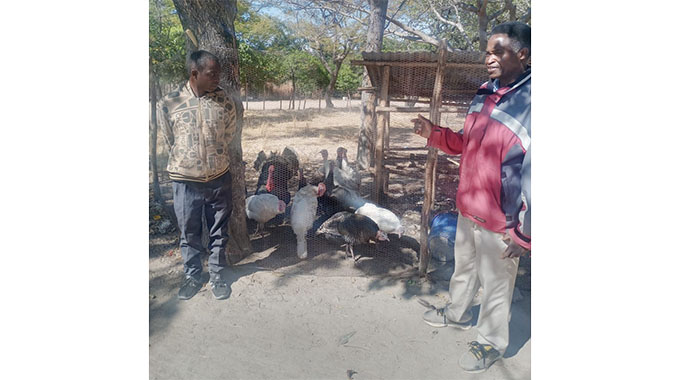Image: Herald
A Guruve rural school is now allowing parents to pay school fees using livestock such as chickens, turkeys and goats as the majority of smallholder farmers in the area often lack cash.
Percy Muzika, 64, a school development committee chairman at Muzika Primary School told the Herald recently that he felt it would be better to have some form of payment, rather than none at all.
“Most parents have no US dollars or local currency to pay for fees. So, we decided as a committee to accept payment in the form of chickens, turkeys and goats to help improve the school’s income,” he said.
“Most households have small livestock, such as chickens, turkeys and goats. These are important assets that the school can convert into cash to cover for fees for the students. A chicken has a value of US$6, a turkey US$25 and a goat US$20 or US$25.”
He said the school runs a project to keep the chickens which are later sold at a profit to cover for feed cost.
Kudakwashe Manyeza, 48, of Gondo Village in Guruve said the school project now had more than 100 road runner chickens.
“We sell the chickens in our community and hand over the money to the school. We have children from poor backgrounds and this is one creative way of making sure our children all have access to education,” he said.
“Our fee is US$15 and a parent can bring three chickens to settle the fees. We accept this because it’s very difficult for some parents to earn the US dollar here.”
The motivation to start this, he said, emanated from the Spotlight Initiative which was empowering local communities with small livestock such as goats, pigs and chickens to improve incomes and the diet at household level.
The programmes running under the Spotlight Initiative supported through a partnership between the European Union and UN Women are aimed at ending violence against women and girls and harmful practices.
Zimbabwe is among the 20 countries in Africa, Latin America, Asia- Pacific and the Caribbean which are participating in the four-year programme which started in 2019 and ends this year.
Some rural schools in Zimbabwe now allow parents to offer to pay through labour.
Other schools run livestock projects, sewing clubs, face-masks and uniforms projects and other projects that include brick making, fish breeding and gardening to supplement their incomes.
The Government allows parents who cannot afford school fees to offer livestock such as goats or sheep as payment.
“Most of our people have no access to the US dollar. We have orphans and it’s the grand mothers who are taking care of them. They can’t afford to raise the fees,” Muzika said.
“Most of the parents are beneficiaries of Spotlight Initiative and are running successful income generating projects. From this, we thought it made a lot of sense to tap into the livestock assets to settle fees and improve our school’s balance sheet.
“Less than 25 percent of children are able to pay fees. Most cannot and it’s a lot easier to pay fees with chickens, turkeys and goats.”
The committee has used proceeds from livestock sales to build a house for teachers.
“We need more resources to build more classrooms for our children. Hot sitting is not good at all for us. Teachers need more houses and so we need to raise more income,” said Manyeza.
“We need help here. We are appealing to donors to help us build our school,” he said.
Herald













